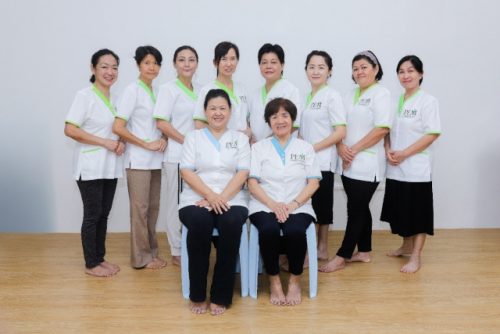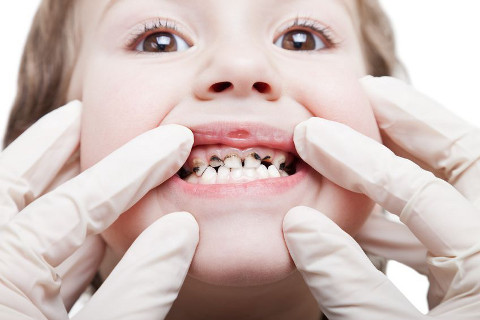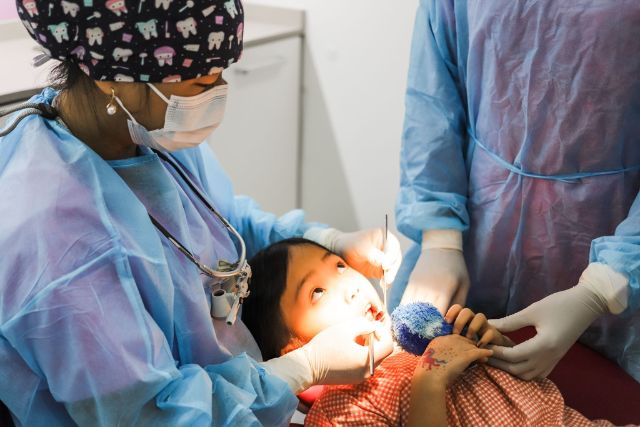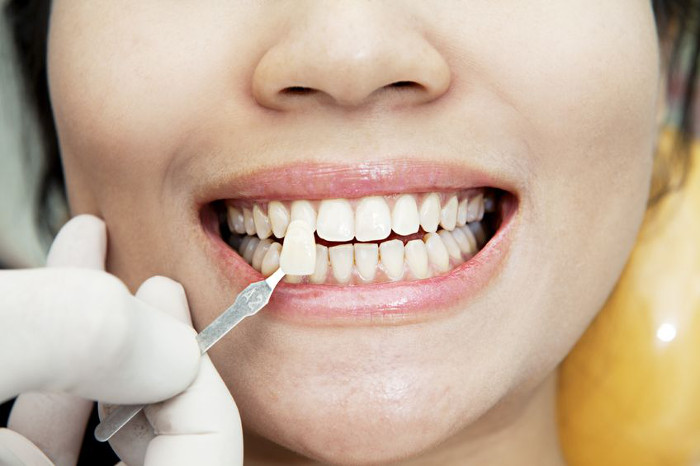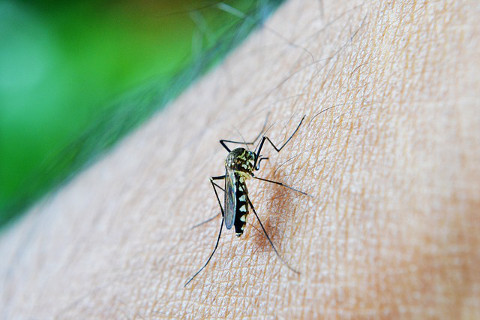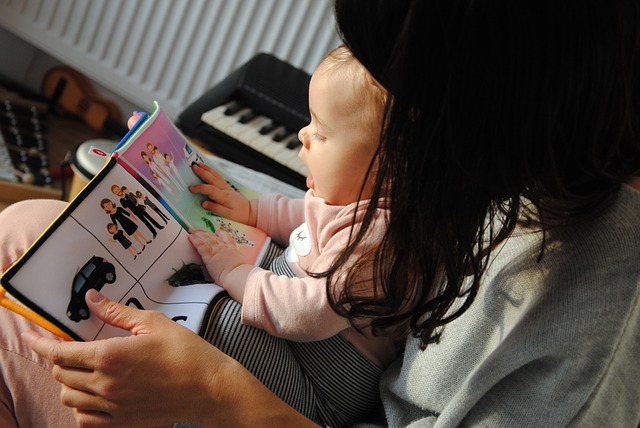Does your child scream and cry whenever you want to bring him to the dentist? Why are children so afraid of the dentist? TNAP spoke to Dr Lim Swee Teck, a Pediatric Specialist from T32 Junior to get to tell us more.
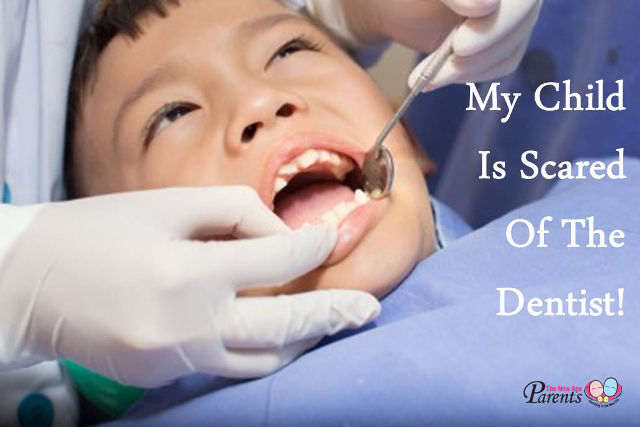
Q: What are some factors that could cause dental trauma in children?
As mentioned, the most common is not taking a child for routine care but only when the child has a toothache or a large cavity or hole on the tooth. The dentist in the process of rectifying the situation may create some discomfort and this “pain experience” becomes traumatic and stays with the child for life. This is how “fears of the dentist” arise from childhood. However, if a child has had a pleasant and fun experience through routine care – such fears will not arise.
Another common cause is “horror stories” from adults or fellow playmates who have had a bad experience at the dentist. When children are exposed to them, they become wary and if they have to undergo a similar experience, it will confirm the fear for life.
Parents need to be aware and careful not to voice their personal fears in front of their children. They should also not use “the dentist as a threat to discipline their children”. Sometimes parents will say “If you do not behave, I will take you to the dentist and have all your teeth pulled out.” To the child, the threat is real.
Q: In general, what scares children the most when they visit the dentist?
The new and strange environment with all its equipment, noise and smell. Most children are unable to cope with it. However, if a place looks friendly and fun, then it may help to change their attitude. In T32 Junior Dental Centre, there is a play-area specially created with familiar things like toys, a TV that helps to introduce pleasantly the new environment to the child. Even the dental treatment rooms have decors to help the child feel comfortable.
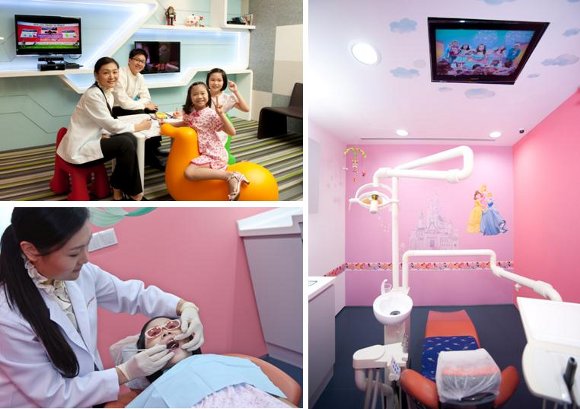
During treatment, the dentist uses well thought out procedures like introducing the child to the “magic chair, baby mirror, spoon and fork” helps to allay fears and allow the child to feel comfortable and to recognize that the environment is friendly and non-threatening.
Children should also be mentally prepared for a dental visit through such tools as books in The Healthy Smile Series which are specially created to educate and help the child to understand oral health care.
Q: My child is scared of the dentist and refuses to go for a check-up. What I do to help?
Parents have had helped such children through a mental preparation of what he/she will encounter and experience through the use of Volume 1: Timmy Visits the Dentist of The Healthy Smile Series. Such preparation can help the child realize that it is a fun place and he is going to learn something new.
We have also been successful in the motivation of such children by allowing them to observe their parents or older siblings or other children undergoing care. Through observation, they are encouraged to try and will find the situation fun and non-threatening. The dentist is careful not to go beyond the limits that the child can handle.
A simple thing that I do with such children is to allow them to have “a ride on the magic chair (dental chair) “with another child or sibling. Some children will test the situation until they are convinced.
Q: What are the common child dental problems in Singapore?
The most common is “ECC” or “Early Childhood Caries”. It involves children at the ages of 2 to 3 years. It is also known as “Milk Bottle Decay” and is caused by allowing the child to sleep with the bottle of milk in the mouth. Breastfeeding on demand by the infant has also been known to cause it. Milk – not cleaned away after a feed is retained on the gums and the baby teeth. The acid produced from the breakdown of the milk which is carbohydrate softens (decalcify) the enamel of the tooth and they break down. Such decay is rapid (rampant) and the child ends up with multiple, rotting (or decayed) teeth which can become sensitive and infected.
We are now educating parents especially young first-time parents on this condition. Children with such a condition and because of age, usually and most of the time required General Anaesthesia for treatment of the teeth.
Insufficient home care supervision on the maintenance of oral health care by parents. It becomes a problem when both parents are working and the child is left to the maid or grandparents to supervise. Parents need to spend time ensuring that their child is practising and maintaining proper oral health care.
“Fear of the dentist” commonly occurs if a child does not get regular, routine care and only taken to see a dentist if and when he/she has a toothache or a large cavity.
Q. When is the appropriate age for my child to visit a dentist?
As recommended by The Ministry of Health, an infant should be taken to consult the dentist at about one year of age. The purpose of such a visit is to ensure that parents are providing proper and adequate home care for the erupting teeth and gums especially after each feed. Parents are also advised on proper oral health care.
The child is next seen at about three and a half to 4 years old when he/she is ready to cope with the dental procedures involved. By this age, all the 20 baby teeth have fully erupted and in place and it is time to initiate the child into an early routine of regular care in order to prevent problems in the future.
Q. My child’s teeth look perfectly fine and healthy. Why does she still need to go for a checkup?
Sometimes, looks can be deceptive. Regular and frequent visits to the dentist enable the dentist to discover and repair small cavities and to prevent the experience of pain, serious complications and the early loss of teeth by the child. The visit also allows the dentist to give advice on diet (to both child and parent) and the proper care for the development and maintenance of healthy teeth and gums in the child.
The dentist also looks at the growth and development of the face, jaws and teeth in the growing child. Other genetic conditions like “extra teeth, missing teeth, malformed teeth” are looked into.
But most important of all is that through regular care a strong bond and trust is built up between the child and the health care provider – the dentist. From decades of experience, it is indeed satisfying to see these children go through life and into adulthood, without a cavity on their teeth as they have learnt and acquired good oral health care habits for life.
Complete this sentence: A healthy set of teeth begins with… Early, good and proper daily oral health care.
By Dr Lim Swee Teck, Pediatric Specialist, T32 Junior.
Practice Address:
One Orchard Boulevard
17th Floor
Camden Medical Centre
Singapore 248649
Tel: (65) 6733 1388
Email: t32@t32dental.com
Emergency Dental Services: (65) 6398 5578
For more info, log on to www.t32dental.com
If you find this article useful, do click Like and Share at the bottom of the post, thank you.
Want to be heard and seen by over 100,000 parents in Singapore? We can help! Leave your contact here and we’ll be in touch.





